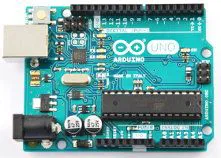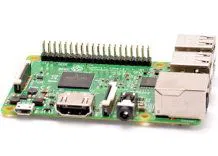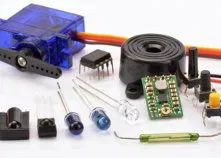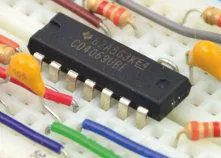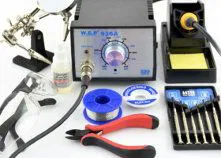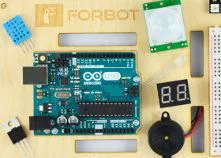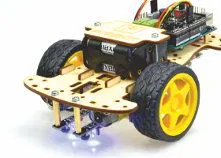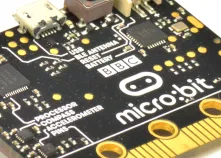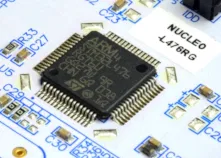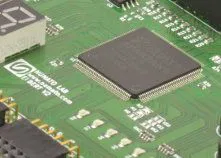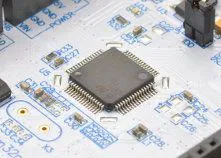Table of Contents:
Wondering what encoders are and what role they play in modern industrial automation and robotics?
This article will dispel your doubts and introduce you to the concept and applications of these key components.
Learn more about their operation, types and how to choose the right encoder for your needs.
Keep reading to explore the interesting world of encoders and highlight their importance in modern technology.
Operating principle of encoders
Operating principle encoders is simple, yet ingenious in its conception. Encoders are sophisticated systems for converting motion into electrical signals. They come in two basic types: rotary and linear encoders, which are designed to convert rotary or linear motion into an appropriately formatted digital or analog signal, respectively.
The main principle of encoders is to read positions using specially designed sensors. In the case of rotary encoders, the sensor reads positions using a code disc with a series of slots that are “read” by LED or laser lighting.
Each change in the light passing through the slots corresponds to a specific position of the puck, making it possible to precisely track rotary motion. Linear encoders, on the other hand, operate on a similar principle, but instead of a code puck, they use a linear code pattern, which allows linear motion to be converted into electrical signals corresponding to precise positions. These complex but incredibly effective methods of encoder operation allow precise control of digital signals in a wide range of applications.
Types of encoders on the market
Recognition of types encoders is key to understanding how these powerful tools can be used in various fields. Various types of encoders are available, each with its own unique features and applications to meet different requirements and uses.
Chief among these are rotary and linear encoders, which we have already discussed. But what’s next?
Among rotary encoders, there are types such as absolute encoders and incremental encoders.
Absolute encoders offer high precision and are able to remember their position even when the power is turned off, which is a definite advantage.
Incremental encoders, on the other hand, are easier to use, but lose their position when the power is turned off.
Linear encoders are classified as either absolute or incremental.
Choosing the right type of encoder depends on many factors, such as precision requirements, system complexity, budget and reliability expectations.
Remember – regardless of your choice, encoders are an indispensable tool in the field of automation and robotics.
Examples of encoder applications in industry
Encoders are a key component of modern industrial systems, and their applications are extremely extensive.
Without their support, various industries could not function as smoothly as they do today.
Encoders provide precise process control and monitoring, which is extremely valuable in many areas of business.
Applications for encoders include the automotive industry, aeronautics, electronics manufacturing, optical equipment, energy systems, medical technology, transportation systems, and many others.
For example, in the automotive industry, encoders are used to monitor and control the speed and position of motors.
In medical technology, they are used in highly specialized devices such as CT scanners and ultrasound scanners, where precise motion control is crucial.
The unique properties of encoders, such as the ability to convert rotary or linear motion into a digitally or analog-formatted signal, make them indispensable in ever-new fields of industry.
Without a doubt, the use of encoders in industry opens the way for continuous improvement and technological innovation.
How do you match the type of encoder to your project?
When selecting encoder, it is important to pay attention to several key issues. Choosing an encoder is not easy, but with knowledge of the subject, you will be able to make an informed and thoughtful choice. First of all, understanding what kind of movement the encoder is supposed to make is crucial. Will it be a linear or rotary motion? This choice will influence the decision whether linear or rotary encoders are involved.
Another important consideration is whether you expect the encoder to retain its position information even when power is removed. If this is a priority, then absolute encoders will be appropriate. On the other hand, if ease of use and lower cost are more important then incremental encoders are worth considering. Of course, other factors such as budget or specific application requirements should also be considered. Keep in mind that the right encoder choice is key to optimizing the performance and efficiency of automated and robotic systems.
The future of encoders and new technologies
Looking at the future of encoders, we may encounter fascinating possibilities brought about by technological advances.
New technologies such as nanotechnology, artificial intelligence and the Internet of Things offer hope for further development and improvement of these invaluable devices.
The future of encoders promises to be fascinating, given the brilliant inventions and innovations that could greatly enhance their precision and versatility. Future encoders are expected to be increasingly integrated with advanced information systems, opening the door to unimaginable possibilities for monitoring and controlling industrial movements. This will make every second of operation of these devices even more efficient and precise. It’s only a matter of time when these changes will start to be seen in the market.
How useful was this post?
Click on a star to rate it!
Average rating 0 / 5. Vote count: 0
No votes so far! Be the first to rate this post.





